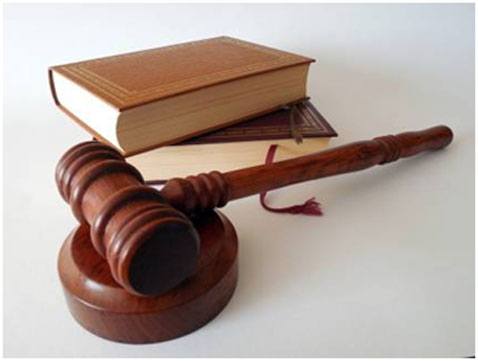Summary: While many lawyers are helping the the poor with legal services, there is still much work to be done before the justice gap is closed.
During recent months, several excellent articles have addressed our country’s need to start providing better legal services to the poor. One of the more comprehensive ones is entitled “The Justice Gap: How Big Law is Failing Legal Aid.” That article clearly indicates that far too many lawyers no longer believe it’s worth their time or money to do what they can to help the poor handle their legal needs.
Fortunately, a handful of states, a few jurists, and some dedicated groups of attorneys are making this challenge a priority in their lives.
Before reviewing some of the more encouraging efforts that may help provide more timely legal help to those with limited disposable income, it’s important to review some of the factors that have contributed to the development of the justice gap.
How Has Our Growing “Justice Gap” Developed Over Time?
All of us frequently forget that no one ever gets to choose the financial or healthcare resources of the families that bring us into this world. Yet those very factors play a major role in our ability to obtain a good education and meaningful work that lets us create personal wealth.
As one Pew Study noted, about 70% of those born into “lower income households” will remain in lower income brackets for the rest of their lives. The hidden burdens and long-term consequences of being provided with low-quality healthcare and education in one’s early years are too numerous to name here. However, should America ever decide to even the playing field for everyone in those areas – recognizing the equal innate dignity of each person – we might be able to start eradicating both poverty and our “justice gap.”
Income inequality is another major reason that many Americans simply can’t afford to hire a lawyer. Although some believe that problem may soon diminish – attitudes in this country toward raising the minimum wage clearly indicate otherwise.
Fortunately, some jurists, states, and lawyers are now taking action to address our “justice gap.”
Jurists and Lawyers Eager to Provide Better Legal Services to the Poor
A. Texas
When asked to comment on this topic, Nathan Hecht, the chief justice of the Texas Supreme Court (and the “longest serving Supreme Court member in Texas history”) had the following to say. “More than ever, people need lawyers, and lawyers need work, but the cost of legal services keeps them apart. The integrity of the justice system depends on our ability to close this ‘justice gap.’ Justice for only those who can afford it is neither justice for all nor justice at all.”
That eloquent statement sums up this jurist’s thinking and is guiding his current efforts, along with those of several others in Texas, to close the gap for many who “aren’t poor enough to receive free legal aid provided to indigents but can’t afford basic legal services on their own.”
Former Chief Justice Wallace Jefferson of the Texas Supreme Court is now serving as the chairman of an 18-member Texas Commission to Expand Civil Legal Services. During the next 12 months, this commission will be “identifying Texans who can’t afford effective legal representation for civil matters – and suggesting effective ways to help [these individuals].”
B. New York
One of the most notable things this state has done is to become the first one to require all of its law students to complete a set number of pro bono (unpaid) work hours prior to being admitted to that state’s bar (in addition to meeting other standard requirements). As the article just referenced notes, one of the reasons this change was made was to be sure critical civil law needs are met in a timely fashion.
Prior to passing this new rule, New York had already learned from an earlier study that “only 20 percent of the legal needs of [the state’s] residents were being met.” Hopefully, all 50 states will take notice of this requirement that both benefits residents with lower incomes who need free legal help and better prepares all new lawyers for practicing before they become fully licensed.
Fortunately, at least one other state has taken note of New York’s new rule for law students.
C. California
Like New York, this state has recognized similar needs and the wisdom of requiring all future law students to complete supervised pro bono work at some point close to when they’re licensed to practice law in California. However, according to one State Bar of California employee, all of their new proposals are currently being re-examined and a definite date for implementing them has not yet been set.
D. Other States’ Pro Bono Requirements for Attorneys
While many other states may be creating new rules to try and close the ‘justice gap” for their residents, it’s important to note that the American Bar Association keeps track of the pro bono work done in states with both “required” reporting and “voluntary” reporting.
- The states which require the reporting of all pro bono work include: Florida, Hawaii, Indiana, Illinois, Maryland, Mississippi, Nevada, New Mexico, and New York.
- The states which advocate voluntary reporting of all pro bono work include: Arizona, Connecticut, Georgia, Kentucky, Louisiana, Michigan, Montana, Ohio, Oregon, Tennessee, Texas, Virginia, and Washington.
Hopefully, all 50 states will consider mandatory reporting in the future, along with a set minimum number of hours per year for each actively practicing attorney – or a minimum dollar amount donated to help local or state legal aid programs.
All currently licensed attorneys are encouraged to visit the American Bar Association website. It provides a number of excellent resources for those interested in doing some pro bono work in their community. Of course, you can also contact your state legal aid offices to find out how you can volunteer your time to help clients.
Groups Like Equal Justice Works Can Also Help Improve Your State’s Outreach Efforts
Should lawyers prefer to locate meaningful pro bono work through other sources, it may be wise to contact Equal Justice Works. This group states that it’s trying to help “create a just society by mobilizing the next generation of lawyers committed to equal justice.” They try to motivate law students to pursue pro bono opportunities while in school and long after graduation. Among other goals, this group funds legal aid internships for recent law graduates around the country.
Why Pro Bono Work Can Prove So Meaningful
There’s often nothing as gratifying as using your professional legal skills to help someone who is physically suffering or otherwise in dire need of legal help. Please watch the following video that can help everyone gain a better understanding of the types of critical needs that civil pro bono clients often need your help to address. (This video is currently posted on the Legal Services Alabama website:
When we fail to properly reach out to the poor, our society greatly increases their chances of losing their cases in court and being swallowed up by a system that they cannot fully understand.
While legal work schedules are often quite demanding, it’s important for all attorneys to keep in mind Model Rule 6.1 of Professional Conduct of the American Bar Association. This same rule is shared in a more expanded form with Harvard Law School students as, “Every lawyer, regardless of professional prominence or professional workload, has a responsibility to provide legal services to those unable to pay, and personal involvement in the problems of the disadvantaged can be one of the most rewarding experiences in the life of a lawyer.”
Conclusion
Although the model rule just quoted above isn’t legally binding on all attorneys – it really should become a guiding standard for all lawyers who want to hold their heads up high – knowing that they personally adhere to the highest ethical standards of their profession.
Elizabeth Smith, J.D., M.A., is a freelance writer who has been writing about general business, legal, medical, and consumer topics for over twenty years. She has also served as the author and co-author of two professional legal texts.











































